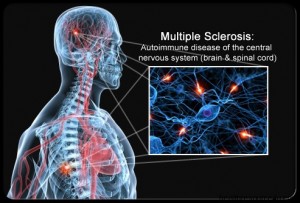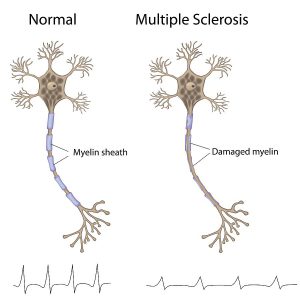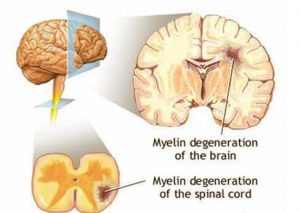Multiple Sclerosis
Fatigue and muscle weakness are common features of multiple sclerosis. A person with MS could be fine one day and then the  next day they may have problems using their arms and legs. Other symptoms of MS could be problems with vision, balancing, stiffness, numbness, and bladder control. The reality of presenting MS cases is that the Social Security Administration normally does not award benefits based on this impairment until the MS has progressed to the point that the symptoms are very obvious.
next day they may have problems using their arms and legs. Other symptoms of MS could be problems with vision, balancing, stiffness, numbness, and bladder control. The reality of presenting MS cases is that the Social Security Administration normally does not award benefits based on this impairment until the MS has progressed to the point that the symptoms are very obvious.  The reason for this is because the symptoms can be so diverse and irregular. The most crucial evidence required by the Social Security Administration is the MRI showing brain or spinal lesions. Once the MRI is submitted, it is hard for the Social Security Administration to deny that MS is present. Of course, if you have MS, the Social Security Administration will want to review medical notes by your neurologist. Neurologists are very reluctant to give a definite diagnosis of MS, even when the MRI clearly shows MS. Many times you will see a diagnosis for MS stated as: “possible multiple sclerosis” or “demyelinating disorder”. However, by definition, a demyelinating disorder of the central nervous system is MS. The most important limitation to focus on is generalized weakness.
The reason for this is because the symptoms can be so diverse and irregular. The most crucial evidence required by the Social Security Administration is the MRI showing brain or spinal lesions. Once the MRI is submitted, it is hard for the Social Security Administration to deny that MS is present. Of course, if you have MS, the Social Security Administration will want to review medical notes by your neurologist. Neurologists are very reluctant to give a definite diagnosis of MS, even when the MRI clearly shows MS. Many times you will see a diagnosis for MS stated as: “possible multiple sclerosis” or “demyelinating disorder”. However, by definition, a demyelinating disorder of the central nervous system is MS. The most important limitation to focus on is generalized weakness.
What Our Clients Say:
Member:

Attorney Gregory Kornegay
Greg is a trial attorney in Wilmington with over 30 years of experience. Greg was born and raised in southeastern North Carolina. Before law school he managed a store with employees making a payroll every week. His first job out of law school was as an Assistant District Attorney investigating and trying cases for the State of North Carolina. Through the years he has handled many different types of cases – including death penalty cases.
Being married with children has been a blessing and a challenge, but has served him well in understanding the problems individuals and families face as they live out their lives. Greg believes that each case is different and the needs of each client are unique, but there are certain themes of life that we all share.


